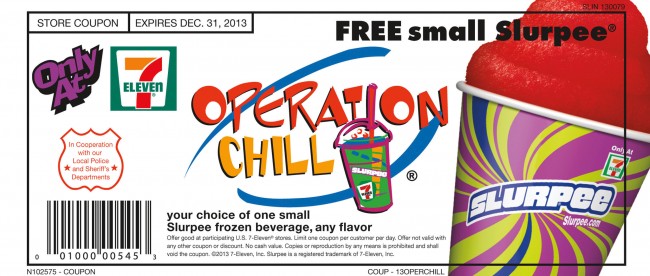You Are Instructed to Chill

If you’re a kid, you hopefully won’t do something to warrant a run-in with the police. But in cities around the United States, the warm weather of the spring and summer months often bring children outside and, at times, into situations where the police intervene. And sometimes, the behavior of these kids provokes officers to act. For more than twenty years, officers around the country have been giving these children a ticket to bring back home to mom or dad.
And the kids couldn’t be happier.
In 1994, the U.S. Congress passed the Violent Crime Control and Law Enforcement Act, an often controversial 356-page crime bill which is, by that measure, the largest crime bill in American history. The Act did many, many things, but of particular note for our purposes was an expansion of the Department of Justice (DOJ). Pursuant to the Act, the DOJ established the Office of Community Oriented Policing Services, which, in the cutesy way Washington sometimes does, goes by its acronym, the “COPS Office.” The COPS office’s charge is to further a concept called “community policing,” which, as summarized by Wikipedia, is “a strategy of policing that focuses on police building ties and working closely with members of the communities.”
In many cases, community organizations involved themselves in that strategy. Typically, the phrase “community organizations” would make one think of churches, schools, and other such institutions. But in this case, the organization in question was convenience mart 7-Eleven. And the “tickets” the police officers were giving out looked like this:

That’s a coupon for a free Slurpee.
As noted on the coupon itself, the promotion is something called “Operation Chill.” In 1995 — the year after Washington voted to invest in community policing — 7-Eleven created a program to arm officers with little rewards for those kids who helped out in their towns. As one New Jersey police department explains, the program also aims “to give law enforcement officers a positive reason to interact with children and teens, further building the community bond.
No studies have been done on the effectiveness of Operation Chill and there’s reason to believe it may not be as great as intended — for many, there’s something a bit unnerving about having a police officer stop you for any reason, even if it’s to reward you with 12 ounces of colored sugar water. But on its corporate website, 7-Eleven extolls the virtues of the program, noting that “more than 14 million Slurpee coupons to police departments across the country to ‘ticket’ young people ‘caught in random acts of kindness.'”
Bonus fact: If you’re a baseball fan, you know that baseball games often start at a few minutes after 7 PM local time — that’s most likely a function of television, which starts shows on the hour or half-hour, but in the case of sports, needs a few minutes for some pre-game jabbering. And, like anything else in baseball (except, mercifully, the uniforms), the start time is something the team can sell to a sponsor. Just ask the Chicago White Sox, who, in 2006, entered into a deal with 7-Eleven to start its weekday home games at — you guessed it — 7:11.
From the Archives: Oneteen and Twoteen: Why isn’t it “Seven-Oneteen”?
Related: A homebrew Slurpee maker, which unfortunately has terrible reviews. Also, what the heck is this?
